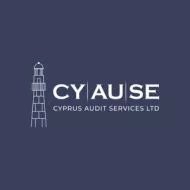Changes on Cyprus Audit Requirements for the year ended 31/12/2022
I can not remember when the last time was there were such big developments in the Audit profession in Cyprus, besides of course the regular changes of the IFRs.
On the 08.06.2022 the Cyprus parliament voted specific criteria on which companies would be audited. Prior to this decision all Cyprus companies were required to perform an audit. This was an income tax requirement which was religiously followed in the republic.
What are the new audit requirements for Cyprus companies:
- Turnover / Income (all income streams with no exceptions) > than Euro 200,000, and or
- Total Assets (excluding liabilities) > Euro 500,000
Auditors will have to review the management accounts of the Cyprus companies and ascertain if the above 2 criteria are met. If they are not met, then companies will not be required to have a statutory audit.
Up until and inclusive of year ends 31/12/2021 all Cyprus companies were requited to comply with the International Auditing Standards (IASs) and had to perform statutory audits. This task was performed by local regulated by ICPAC (Institute of Certified Public Accountants in Cyprus) Audit and Assurance firms like CYAUSE Audit Services Ltd.
This impliedd that irrespective of their size, transactions, risk profile all companies had to comply with lengthy documentation and detailed audit work which in most cases it can be argued it was not necessary so that the auditors would support their audit opinions.
On the other hand, the regulators had to monitor and review all their members for the quality and compliance with the IASs irrespective of whether these licensed audit firms have been performing a statutory work for a kiosk, a holding company, or a bank.
What this change means to the profession
Regulated audit firms will be required by law to perform statutory audits only for companies that meet the above thresholds which translated to less companies but bigger in size which, to be honest, makes sense.
This are great news, I believe, as audit firms will not necessarily change their fees for the preparation of the financial statements and tax return completion, which is a very detailed and complicated process, but would certainly reduce the amount of paperwork required to perform statutory audits on smaller clients.
Having said this, we expect banks to require audited financial statements for smaller clients for loan purposes, something which also aligns Cyprus with the rest of the world's compliance and banks common practices.
CYAUSE Audit Services Ltd
We are a Regulated Audit & Assurance firm in Cyprus with offices in Nicosia and Limassol servicing more than 300 clients locally and internationally. Routine statutory external and internal audit engagements are performed by our experienced staff daily as these functions represent almost 50% of our day to day activities.
CYAUSE Regulators: ICAEW, ACCA & Cyprus local Audit Regulator ICPAC (Institute of Certified Public Accountants in Cyprus).
ICPAC Registration/ License Number: E321/G/2013
So what is a statutory audit?
I have come across audit, statutory audit and internal audit. I am confused!
Lets start with the easiest one – the Internal Audit
An internal audit is either a statutory requirement usually required by regulated entities, Investment Firms, public companies or it is a purposely ordered engagement by an Organisation itself to assess its internal control systems.
Internal audit engagements are performed to provide assurance to the management or the users of the organisations facilities and the government that the organisation is well run internally with well though and thorough procedures that would deter fraud, malpractice, operational errors and would enhance efficiencies.
So what is a Statutory Audit
A statutory audit is the assessment of the financial statements of a company by a Regulated Audit and Assurance firm like CYAUSE Audit Services.
The auditors, plan and execute their work based on a sophisticated sample basis to provide an opinion to the financial statements of the company usually prepare by the Company. They test all items of the financial statements including the disclosures making sure that they are not misleading to the users of the financial statements and that they add value to them.
Audit work is not visible to the user of the financial statements nor the paying client which is the company itself. Audit work comprises of a series of paperwork, narrative, tests and conclusions all supported by the firms and IASs methodology and are property of the audit firm.
Auditors must have all their work readily available to the regulator in case of an on-site monitoring * or in case of an investigation by the local authorities. In fact, the auditors work is summarised on 2 or 3 pages, called the audit opinion where they state whether the financial statements show a true a fair view.
Facts, documentation and detailed audit work performed by the auditors to reach that opinion is only visible to a 3rd party if requested and if the audit firm agrees to show their work.
Consequently, we believe, the latest developments for Cyprus audit requirements are towards the right direction and likely to benefit everyone:
a) Audit Firms
Will be preparing lengthy supporting documentation and detailed audit work to support their audit opinions only for large companies as defined by the law.
b) Companies that do Not Need an Audit
Nothing really changes for them as the company tax returns and the financial statements must be prepared and reviewed by a regulated auditor.
In the event they are not reviewed by a regulated audit and assurance firm (this must be stated as such in the tax return prior to its submission; there is a box on the actual tax return that must be ticked) these tax returns are likely to be investigated by the local income tax office; we all know what happens what the taxman visits the premises.
c) Regulators – local and international
The local regulators ICPAC ((Institute of Certified Public Accountants in Cyprus) will have less companies to review and monitor, thus hiring less staff and making their lives easier. Same will apply for the international accounting bodies the ICAEW and the ACCA.
Overall: It makes sense.
There is no need to spend so much time documenting work performed for an inactive company as you would do for the audit of a large trading company in order to be compliant with IASs just because the Cyprus regulator believes in a one size fits all audit.
Clearly the new regulation ensures that issue is now been resolved.
The content of this article is intended to provide a general guide to the subject matter. Specialist advice should be sought about your specific circumstances.

